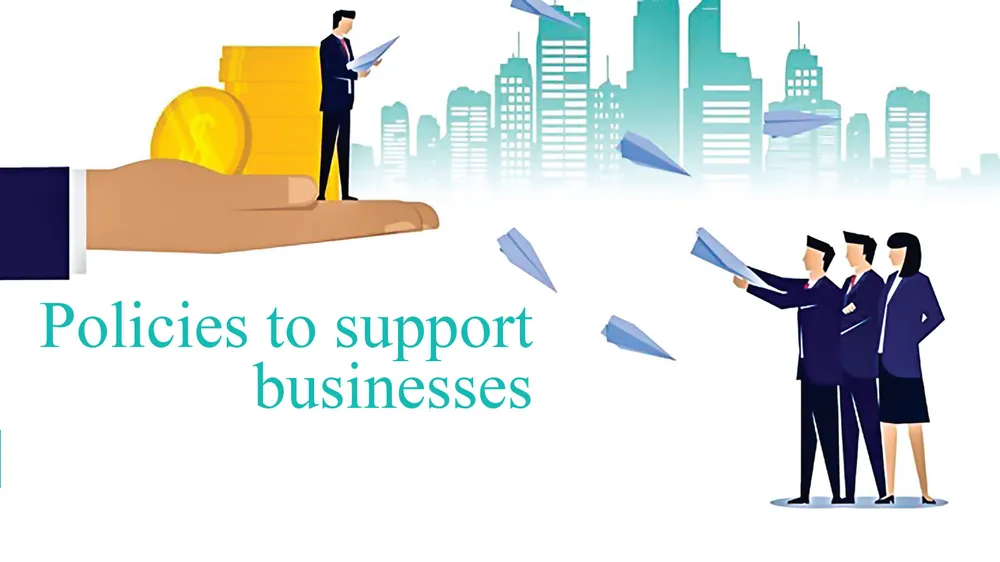
Unfair distribution
Decree 41/2020/ND-CP issued by the Government stipulates Group Categories in businesses, organizations, household businesses and individuals that are entitled to delay tax payment and land use rent. These Groups are as follows:
Group One: Businesses, organizations, household businesses and individuals dealing in activities related to agriculture, forestry and fisheries; food production and processing; textiles; apparel manufacturing; manufacturing of leather goods and related products; processing and production of timber, wood or bamboo products; manufacture of straw products and woven materials; manufacture of paper and paper products; manufacture of rubber and plastic products; manufacture of non-metallic minerals; manufacture of metals, metal works, metal treatment and metal plating; manufacture of electronic, computers and optical products; manufacture of automobiles and other vehicles; manufacture of beds, cupboards, tables and chairs; and building construction.
Group Two: Businesses, organizations, household businesses and individuals dealing in activities related to transport and warehousing; accommodation and food services; education and training; healthcare and social assistance activities; real estate activities; labor and employment services; travel agency, tour and assistance services relating to tour promotions; art creation, performance and entertainment activities; activities for libraries, museums and cultural activities; sports and recreation activities; and cinema activities.
Group Three: Businesses, organizations, household businesses and individuals with economic activities in support industries whose development is prioritized; and major mechanical products.
Group Four: Small and extremely small businesses as defined in Decree 39/2018/ND-CP enacted in 2017 Law, that support small and medium-sized companies.
However, it should be noted that businesses, organizations, household businesses and individuals in Group One, Group Two and Group Three categories are required to show earned profits from their sales in 2019 or 2020, before they can receive assistance as mentioned in the support policy decree.
It is also very clear that the Covid-19 pandemic has had very different impact on different economic sectors and groups of businesses. Though, some groups of businesses can raise their voice about their problems, some groups cannot do so, or do not have an opportunity to make their voices heard.
Those in Group One, like state-owned companies, for instance, must look to the State Capital Management Committee; BOT companies must go to the Ministry of Transport; and real estate companies must ask for assistance from the Vietnam Real Estate Association and organize meetings to have their problems heard.
In contrast, other companies with real difficulties often do not have an opportunity to ask for help, so they are accustomed to hardships and resign themselves to accepting their situation, knowing that nobody will take any notice if they make a complaint. It is so far unclear whether any agency has recorded any statistical figures showing the percentage in this group category for receiving any support from the Government.
No effective method
Is it a hard time for association-backed companies such as BOT companies, for example, who previously were able to collect toll and make profit. Now, social distancing has made it difficult for the transport sector to operate to full capacity, so they have asked to raise the toll fee, which is causing bad vibes among people. It should be noted that BOT fees are basically a kind of tax. While taxes are paid to the national budget, road toll fee goes directly to the company. It is also clear to the public that difficulties in the BOT companies are not as serious as those in transport companies, and difficulties faced by large real estate companies cannot be as bad as those that small and extremely small companies are currently having to face.
It is now becoming evident that exemptions, delays or reduction in corporate income tax and land use rent are actually not so significant. According to the White Book on Vietnamese Businesses for 2020, published by the Ministry of Planning and Investment, small and extremely small companies that amount to 93% of all companies, always had negative gross profit from 2011 until 2018, and the losses in these companies are also rising. The average gross profit in an extremely small company was -0.5% in the 2011 to 2015 period and -1.3% in the 2016 to 2018 period, while the rate in a small company was 0.1% in the 2011 to 2015 period and -0.3% in the 2016 to 2018 period.
This shows easily that small companies and extremely small companies have been on the edge of bankruptcy with or without the Covid-19 pandemic affecting their operations. Thus, regulations that require businesses, organizations, household businesses and individuals to show profits from their sales in 2019 or 2020 before they can receive assistance is nothing short of a cruel paradox.
It is also a paradox that not a single organization has called on any agency to provide assistance for small and extremely small companies, and it is not also clear whether or not these companies still exist. This must be the reason why the General Department of Taxation in the Ministry of Finance says that by June, only 20% of all the companies around the country have submitted their documents asking for a delay in tax payment.




















